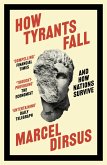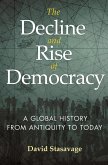'Captivating' DARON ACEMOGLU
'Important' FRANCIS FUKUYAMA
An award-winning political scientist shows that a society's path to prosperity, sustainability, and equality depends on who owns the land.
For millennia, land has been a symbol of wealth and privilege. But the true power of land ownership is even greater than we might think. In Land Power, political scientist Michael Albertus shows that who owns the land determines whether a society will be equal or unequal, whether it will develop or decline, and whether it will safeguard or sacrifice its environment.
Modern history has been defined by land reallocation on a massive scale. From the 1500s on, European colonial powers and new nation-states shifted indigenous lands into the hands of settlers. The 1900s brought new waves of land appropriation, from Soviet and Maoist collectivization to initiatives turning large estates over to family farmers. With the establishment of cooperatives in North Africa, the displacement of Native Americans and divisive inheritance laws of post-partition India, land decisions reverberate to this day as governments vie for power and prosperity by choosing who should get land. Drawing on a career's worth of original research and on-the-ground fieldwork, Albertus shows that choices about who owns the land have locked in poverty, sexism, racism, and climate crisis-and that what we do with the land today can change our collective fate.
Global in scope, Land Power argues that saving civilization must begin with the earth under our feet.
Dieser Download kann aus rechtlichen Gründen nur mit Rechnungsadresse in A, B, BG, CY, CZ, D, DK, EW, E, FIN, F, GR, HR, H, IRL, I, LT, L, LR, M, NL, PL, P, R, S, SLO, SK ausgeliefert werden.









